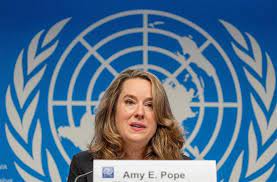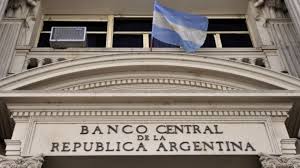In an effort to change the perception of migrants in many areas of the world, the new head of the U.N.’s migration agency stated on Monday that the private sector is “desperate” for their countries to accept migrants to fill labor shortages, especially in the West.
In the face of “build-the-wall” rhetoric in the United States to block migrants from Latin America and right-wing movements in Europe that want to keep foreigners out, Amy Pope, the first woman to lead the International Organization for Migration, sought to play up the economic benefits of migration for rich nations with aging populations and declining workforces.
Pope, an American, told reporters, “We hear from the business sector that they are anxious for migration in order to fulfill their own labor market demands and to continue to fuel innovation within their own enterprises. We hear this from the private sector internationally, but especially in Europe and North America.
She claimed that there is “fairly overwhelming” evidence to support the notion that migration helps economies by creating jobs, stimulating innovation, or “fueling the renovation or revitalization of aging communities.”
“Migration generally has positive effects. That doesn’t mean that the rhetoric around migration accurately represents its enormous advantages.
The Biden administration, which strongly backed Pope’s candidacy, recently granted work permits to nearly 500,000 Venezuelans, whose home country has been in economic and political turmoil in recent years, in an effort to help get them to work, pay taxes, and stop being a burden on public finances. Governments that open up to migration frequently do so at their political peril.
However, detractors claim that such policies take away manual and blue-collar employment and pressure wages downward by encouraging migrants to migrate to the United States.
Pope reaffirmed a long-standing demand by U.N. agencies that nations must ensure proper and legal “pathways” to migration.
“The difference today is that 30 of the biggest economies have experienced very significant labor shortages, and we are seeing it everywhere,” she added, adding that the affected industries included agriculture, construction, health care, and hospitality.
Pope stated that her first journey abroad will be to East Africa, where many people have fled due to drought and the effects of climate change. 80% of African migrants, according to her, remain in their home countries, and she said that it was not her responsibility to “just focus on south-to-north migration, which I know occupies a lot of the political space and a lot of the print space.”
Budget cuts for humanitarian relief, the need to include the commercial sector in the “conversation” to encourage migration, and indications that migration is expected to increase were among the points she made.
In response to her discussions last week with migration experts in Asia, she stated that more and more people are trying to leave their home countries in search of a better life. “Whether it’s climate change, conflict, the inability to find a job or a future at home, or violence within neighborhoods or communities, more and more people are looking to find a better life somewhere else in the world,” she said.
Pope formally succeeded her previous boss, Antonio Vitorino of Portugal, on Sunday. She had defeated Vitorino earlier this year in a battle between the United States and the European Union. Since its establishment in 1951, the Geneva-based organization has only had two non-American directors in general. Today, it has 175 member countries and more than 20,000 employees.


















